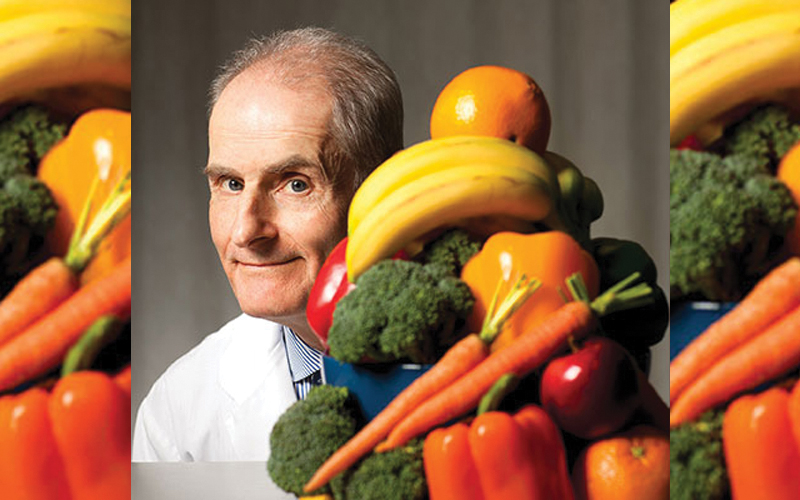Dr. David Jenkins Has a Big Beef With How You Eat

Dr. David Jenkins, renowned developer of the Glycemic Index and University of Toronto professor, will deliver a sober message to people attending Moses Znaimer’s ideaCity – and especially to the boomers in the audience.
The physician and scientist will be speaking Wednesday (June 17, 2015) afternoon – and you can hear him live here. “The most important thing for Zoomers,” he says, “is what’s going to happen to their grandchildren and great-grandchildren.”
And it’s pretty much all bad, he warns. “There’s not too much that’s not distressing. Can you give me some good news?”
His list of major concerns begins with the “rapid increase in chronic diseases, destruction of tropical rain forests and radicalization of young people.”
But all is not doom and gloom, says Jenkins. There is a solution: “We have to get in sync with the environment.” The world famous expert in the field of nutrition says we can best do that “by judicious use of what we eat. We can help ourselves and the planet.”
While promoting veganism –no animal products whatsoever– Jenkins acknowledges that the “block of cheese”and omelettes are the last hold-outs for many people.
But vegetarianism – eliminating flesh, organs and other body parts of living creatures from the diet – will in the future be a way of life for most people, he believes.
“People will find the idea of consuming flesh and blood “repulsive,” he suggests, “especially when looking at what happens in modern abattoirs.”
They’ll also be motivated to give up their bloody prime rib because of what the cattle industry is doing to the planet. Right now, he says with obvious disgust, they go to the steak house “and the only thing they think about is whether to have it raw or charred.”
But the cattle industry accounts for 15 per cent or more of the carbon footprint, increasing greenhouse gasses, using resources such as fossil fuels and water and destroying the tropical rain forest for use as pastures. “China,” he says, “is one of the most rapidly growing meat consumers. With money, comes a taste for blood.”
If India goes the way of China, he warns, and if we can’t control the birthrate and everyone starts eating like North Americans, “We’re in dead trouble.”
But Jenkins acknowledges that our taste for meat could be part of our genetic heritage. “It may go back to our chimp ancestors,” he explains. “They don’t eat a large amount of meat but when the ladies were in heat, the gentlemen would hunt smaller monkeys and tear them into smaller pieces and climb to the top of the tree with the meat.
“When the ladies came up and gave them some satisfaction, they’d get some meat. Meat gives the extra iron for the pregnancy that follows, so there was an evolutionary benefit.”
But haven’t we come a long way from our ape ancestors in the trees? “I wish that were true,” he replies drily.
Stay tuned for our coverage of ideacity 2015!
This year’s ideacity conference will be held at Toronto’s Koerner Hall on June 17-19, 2015. For more information or tickets visit the ideacity website – or if you can’t make it in person, check out the webcast here.